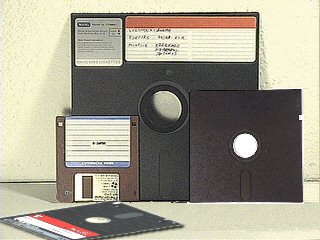 |
| Constantine - Founder of Christianity? |
Religion fascinates me; I collect church memberships. I was baptized an Anglican. I was 'saved' at 10 as a Methodist. At 11 I went to a Quaker school and began to think. I was an agnostic at 15, Humanist at 17, an atheist at 20. I got married at 30 (the second time) as a Unitarian. By the time I went to the USA I was an atheist again - an iconoclastic one too. In Canada at 50 I became a member of the Mormon Church and now - well I'm not going to tell you. In between times I've read the 'rest' of the bible that was left out of the standard one, I've read about Jehovah's Witnesses, Christian Science, Buddhism, Shintoism, Hinduism, the works of Confucius, Islam, Wicca, Norse gods, and the religion of ancient Sumeria Oh - and I've also read 'The Biggest Secret' by David Icke. So to start with - here's a few questions and possible answers.
Questions and answers
Q. What does God(s) want of man? Does he really want us to 'worship' him/her/them? Isn't the desire to be worshiped a little too human to be worthy of a god?
A1. This is what the Sumerians had to say about what the gods wanted of Man:
At the beginning of time there were only gods and goddesses on Earth. They had to work the land to grow crops to eat. This was difficult and they worked very hard. Each god and goddess had a job to do. Some dug the fields and planted the crops. Others brought water to the fields in ditches which had to be kept clear of weeds. They had to work very hard and they were not happy. They got together to discuss what could be done to lighten their workload. They went to get advice from Ea (Also known as Enki - god of wisdom), who was wise and clever. Ea suggested that he create creatures to serve them by working the land. Then the gods' and goddesses' lives would be easier. The gods and goddesses thought that Ea's plan was a good solution. Ea collected clay from around his watery home and used it to make humans. He breathed life into the clay figures, but he limited how long they would live. Only the gods and goddesses would live forever. The humans were put to work in the fields. As servants of the gods and goddesses they had to provide them with food and drink for their tables.The humans took water from the rivers and fed the dry and lifeless lands. They dug the soil and planted crops. With hard work the humans brought life to the land, and the gods and goddesses, who had brought life to the humans, were happy...for the moment...
Seems reasonable to me.
A2. The Church of Jesus Christ of Latter Day Saints (and incidentally the Jews) say:God is our spiritual father - he is literally the father of our soul or divine spark. Like any parent he wants the best for his children. We are put on Earth to learn morality amongst other things before we join him in 'heaven'. The LDS also says: If we make use of the opportunity we can eventually become gods ourselves. (Can you imagine the disastrous actions of an immoral god?) This means he doesn't really want us to worship him but a little respect would be in order.
Q. Is God male?
A. This question seems to assume that there is only one god. Many religions are quite happy to accept both gods and include female gods too. Many primitive cultures worshiped an Earth Mother. The early Christian church took a great deal of care to stamp out such beliefs, seeing it as a greater threat to Christianity than Satan appeared to be. The Mormons are happy to accept a 'heavenly mother' but don't pray to her, worship her or make very public this belief quoting 'people are very quick to take the name of God and Jesus in vain - imagine what they would do to the heavenly mother's'.
Maybe God(s) are neither 'he' nor 'she'. The concept appears unnatural to us but it's possible. For that matter - why stop at two sexes, (which are beneficial in promoting variety of genes), why not have three sexes or even more.
Q. If there is really a god how can he allow so much suffering in the world?
A. You are forgetting the scale of eternity. Suffering while on Earth, no matter how bad it seems to us now, is only a pinprick to eternity. Think about the pain of childbirth and how quickly it is forgotten. If nothing else pain on Earth gives an immortal soul something to talk about during eternity. Whilst this view seems to give the 'bad guys' carte blanche to inflict pain they do so at their peril since they are dismally failing the opportunity they have to become moral beings.
Biblical Plagiarism
Bible Genesis 2:7 And the LORD God formed man of the dust of the ground, and breathed into his nostrils the breath of life; and man became a living soul.
Ancient Sumerian creation: Ea (Enki) collected clay from around his watery home and used it to make humans. He breathed life into the clay figures, but he limited how long they would live. Only the gods and goddesses would live forever.
He was born on December 25th to a virgin mother; He was called a saviour, the only begotten son, and died to save humanity; he was crucified on a Friday - "Black Friday" and his blood was spilled to redeem the Earth; he suffered death with nails and stakes; he was the Father and Son combined in an earthly body; he was put in a tomb but three days later his body was gone and he was resurrected as the most high God; his body was symbolised as bread and eaten by those who worshiped him. Does this sound familiar? Jesus? No - it's a description of Attis a God worshipped in what is now Turkey about 1000 years BC.
Curius that bit about three days. The bible makes no explanation of why it was necessary. It's very similar to the zoroastrian believe that after death, the urvan (soul) is allowed three days to meditate on his/her past life. The soul is then judged by a troika Mithra, Sraosha and Rashnu. If the good thoughts, words and deeds outweigh the bad, then the soul is taken into heaven. Otherwise, the soul is led to hell. Zoroastrianism pre-dates Christianity by 1000 years and believes in a single God. It was founded by Zarathushtra (Zoroaster) in Persia which at the time followed an aboriginal polytheistic religion. Zoroastrians also believe in a 'Savior' born of a virgin birth.
The biblical story of Noah and the flood is an almost exact copy of part of the Epic of Gilgamesh which was written over a thousand years before the old testiment 'Noah' version was.
The Original Christianity?
There's little doubt now that modern Christianity has it's roots in the time of Emperor Constantine of Rome (272-373 AD). Before that there were a number of variations of which we'll look at two here. The two variants of Christianity being that of the Essenes supported by James, brother of Jesus and the Romanized variant of Paul. The Dead Sea Scrolls show that there was some acrimony between these two variants. James didn't like Paul deifying his brother and adopting pagan stories about him. Paul felt that this was quite acceptable and necessary for the faith to grow.
I was fascinated when I first heard of the Dead Sea Scrolls and looked forward to their translation and publication. I waited and waited - long enough for conspiracies to grow around them. Eventually over a decade later they were published and I began to doubt that the bible as we know it was quite authentic. I started to put my thoughts together on this but in the meantime read Daniel Brown's Da Vinci Code. For a work of fiction it's obvious that he too has done a great deal of research and has chosen to present it in a fictional form. It's a great read and I recommend it to anyone and look forward to the forthcoming film. Once the film comes out in May 2006 I wouldn't be surprised to see the issue raised in the public awareness.1 Just remember it's fiction based upon sound historical facts.
This would be a good place to comment on the court case about the Da Vinci Code being the plagarised version of the non-fiction 'Holy Blood and the Holy Grail' but ... Let me devote a separate page to it.
Footnote
1 Well I've seen the film but have to admit I was disappointed. I don't think it will rate as much and is unlikely to win Oscars. My advice - watch it if you want but buy the book in preference.





